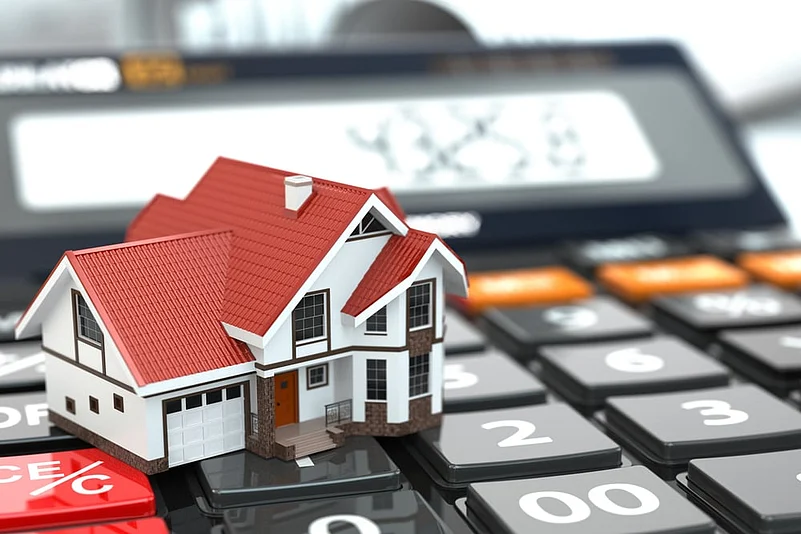Buying their first home is more than just a financial decision for many. It’s not only about choosing a place to live but an investment homebuyers make that can shape their lifestyle and finances for years to come. So how do you ensure you are making the right choice? From budgeting the purchase, loaning the right amount, document verification, etc., there are many key considerations homebuyers must keep in mind.
Here’s what you should consider while making your first property purchase:
1) Start With Your Finances
The first thing you need to get clear about is your budget. It is tempting to dream big, but you should be practical about your finances. You can start by putting the right questions in front of you, such as:
- How much have I saved for a downpayment?
- How much can I comfortably afford as monthly EMIs without stretching myself thin?
There are many factors associated with sorting out finances when it comes to a property purchase. Says, Atul Monga, CEO and Co-founder of BASIC Home Loan, “The first key factor in buying a property for the first time is understanding the total cost involved, including the down payment (usually 10-20 per cent of the purchase price), registration fees, stamp duty, and GST.”
Downpayment: A larger down payment reduces the borrower’s loan liability, monthly EMIs, and total interest paid over time. “It is advisable to pay at least 20 per cent (if not more) of the property’s value upfront. While you can use your bonuses, savings, or liquid assets to do so, make sure you don’t break into your savings earmarked for emergencies or long-term financial goals,” Monga adds.
Floating v/s Fixed Interest Rate: When you are taking a loan you would have to choose between signing up for either a fixed or floating interest rate. But which one should you go for?
Says Monga, “Given the current market conditions, I would recommend loan borrowers to opt for floating rate loans. These loans have variable interest rates that adjust according to market conditions. They are well suited for situations where the interest rates are high, but expected to fall.”
A drawback of a floating interest rate is that EMI payments may fluctuate throughout the loan tenure.
Fixed-rate loans can be a good choice when current rates are low and expected to rise. Their EMIs remain constant, offering predictability and stability which is ideal for those with fixed budgets.
“Do note that such loans usually come with slightly higher interest rates, and there’s a limited benefit if the interest rate decreases. Also, keep in mind that only a few lenders offer fixed-rate home loans,” Monga informs.
Some borrowers may also consider hybrid loans, which combine both fixed and floating rates.
Homebuyers should always assess their risk tolerance, repayment capacity, and long-term financial goals before choosing the right loan type.
EMI Obligations: Next, homebuyers should assess their loan eligibility and monthly EMIs by considering their income, existing financial obligations, repayment capacity, and credit score.
“When considering a home loan, opt for a loan amount that keeps your EMIs under 40 per cent of your monthly income to maintain regular cash flow for other financial goals and investments. Choose a loan tenure that allows you a greater balance between affordability and minimising total interest payments,” Monga adds.
Additional Costs: While in the process of purchasing the property, you should research the applicable stamp duty (typically 5-8 per cent of the property value) and registration fee (usually 1-2 per cent) in your state. Factor in ongoing expenses such as maintenance charges, property tax, and other costs. “Create a detailed budget that includes these costs, keeping them separate from the property price and down payment. Try to build a reserve fund to cover unforeseen expenses such as legal fees, brokerage, or unexpected repairs. Additionally, take advantage of available tax benefits,” Monga advises.
Overlooked Expenses: Homebuyers should also consider some major expenses that are often overlooked such as maintenance charges, interior costs, insurance, and utility setups. “Don’t forget to align your home-buying budget with long-term financial goals like retirement
planning, to ensure affordability and long-term financial security,” Monga suggests.
2) The Location Delimma
When it comes to buying a home, choosing a location is all about convenience, security, accessibility, and the overall long-term value of the place.
Says, Umesh Bhati, Director, Bayside Corporations, “The location of a property is one of its most defining attributes, influencing both day-to-day convenience and long-term value. Buyers should prioritise areas with robust connectivity via road networks, public transportation, and proximity to workplaces, schools, and healthcare facilities.”
According to Bhati, homebuyers should evaluate the location based on the following key factors:
- Upcoming metro lines
- Tourism-driven development
- International business hubs
All these factors can ensure both a better living experience and higher returns on investment.
“Engaging with local experts and studying government master plans will provide invaluable insights into the property’s growth trajectory,” Bhati shares.
3) Legal Due Diligence Is A Must
When purchasing property, it is vital to verify several key documents. Making sure the title deed of your house purchase is clear and free of encumbrances is one of the most crucial steps.
According to Shantanu Gambhir, MD, RISE Infraventures homebuyers should double-check the following documents:
- The Sale Deed: Confirms ownership transfer. The sale agreement should clearly outline all terms, including payment schedules and penalties for non-compliance.
- Encumbrance Certificate: Ensures the property is free from financial or legal encumbrances.
- Possession Letter: Specifies when you can move in
- Occupancy Certificate: Ensures the property is habitable.
“Additionally, obtain No Objection Certificates (NOCs) from relevant authorities, such as fire and pollution control, to confirm all required approvals have been secured for the property’s legal use and safety,” Gambhir suggests.
Homebuyers should note that cross-verifying the builder’s RERA registration is essential, as it ensures compliance with industry norms and consumer protections.
4) What is the role of resale value in choosing a first home?
Says Gambhir, “Resale value is an important consideration, even for first-time homebuyers. While your immediate focus may be on living in the property, choosing a home in an area with good resale potential can protect your investment in the long run. It offers flexibility for the future, whether you want to upgrade or relocate.”
Key factors that influence resale value include location, property type, local demand, and infrastructure plans. “With its ongoing and comprehensive development, areas like Delhi-NCR offer a high resale value due to their accessibility, growth, and urban expansion. This makes such locations a wise choice, offering flexibility for future upgrades or relocation,” states Gambhir.
4) Know Your Builder/Broker
The reputation of the builder plays a significant role in ensuring a smooth buying experience. Says Bhati, “Buyers should research the developer’s track record for timely delivery and construction quality.”
Adding on to this, Gambhir suggests that while evaluating the credibility of a builder or developer, homebuyers should begin by researching their past projects and reputation. “Look for reviews and testimonials from previous buyers and assess if their completed projects were delivered on time and adhered to promised standards.”
Here’s what you can do:
- Visit some of their properties to inspect construction quality firsthand
- Verify their financial stability and ensure they are registered with regulatory bodies like RERA, which provides transparency and accountability
“Transparency in dealings and clarity in documentation are non-negotiable aspects of a trustworthy builder,” states Bhati.
4) Red Flags You Should Watch Out For
If you are considering an under-construction property, a check-up on the builder, project, and area is a must. According to ANAROCK’s Consumer Sentiment Survey 2024, project delays and unfulfilled promises have been reported as common concerns among buyers of under-construction property.
The typical red flags of such houses are missing RERA registration, inconsistent timelines, and lack of clarity in project approvals.
As a homebuyer, never shy away from verifying whether the promised amenities and quality standards align with the developer’s track record. Transparent communication and adherence to construction schedules are a tell-tale sign of a reliable builder.
5) Have An Emergency Fund
It is important to build an emergency fund that should be sufficient to cover up to 6-12 months of your expenses. Moreover, in case you are tight on finances and have a risk of defaulting on loan EMIs, the emergency fund can help you sail the tide.
The Bottom line
The key considerations for homebuyers before making a first purchase are to first organise and settle the finances, followed by proper verification of all legal documents.
Additionally, make sure that the seller or builder discloses any hidden charges involved. It is important to assess long-term maintenance costs and opt for properties with reasonable upkeep expenses when you are finally thinking of making the purchase.


















